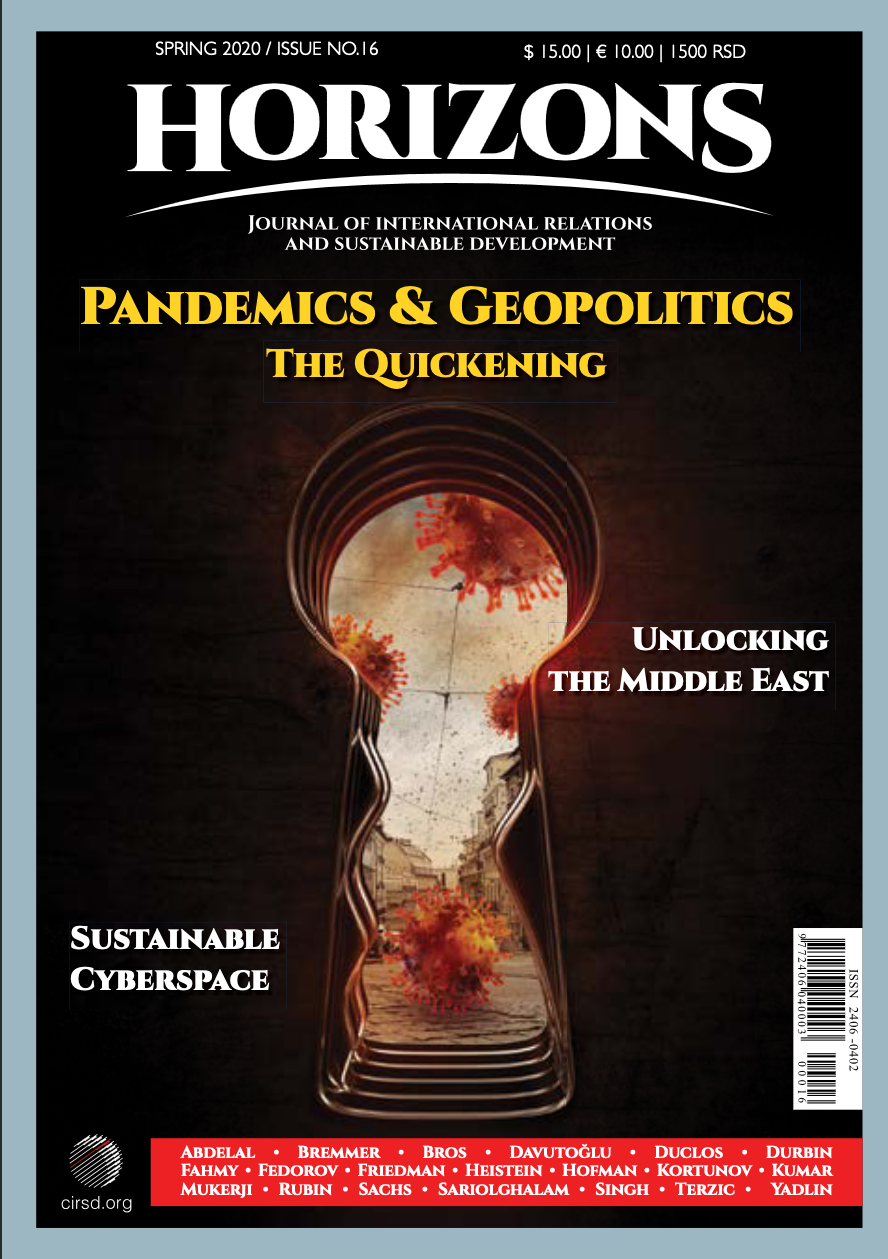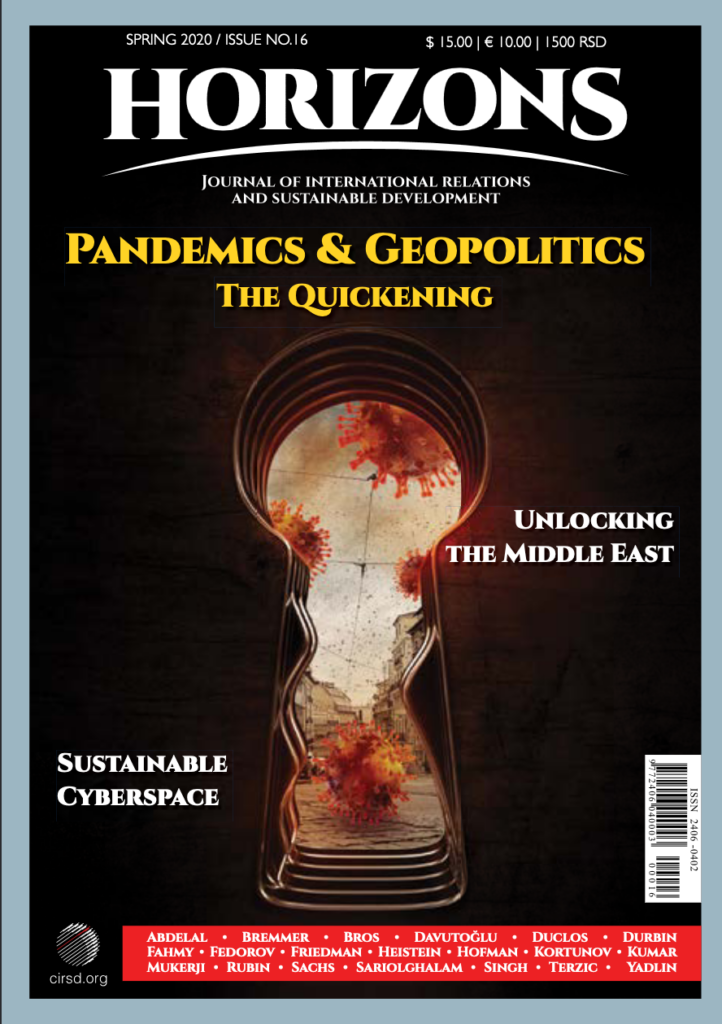
COVID-19 as Not Unique but New Generic Problem
By
Branko Terzic
After this coronavirus crisis passes it is likely that we will rediscover that our responses—successful and unsuccessful—to this global catastrophe can provide us with lessons for use in future similar crises. How we evaluate these lessons and create playbooks for dealing with future crises will be the result of individual and collectives efforts of all segments of society including government, the private sector and non-governmental organizations coordinating at local, regional, and international levels.
The COVID-19 crisis follows a number of other national and global crisis of this and the last century. Here in the United States these recent past crisis include: 9/11, the oil price and supply shock of the 1970s, the December 1941 attack on Pearl Harbor, the Great Depression, and others. Remarkably all share the same single factor in common. In each case the United States government—hardly alone in this regard—was unprepared for the catastrophe. This not only raises the evident ‘why?’ question but also the issue of whether and how lessons can be discerned during the aftermath of a catastrophe.
One possible answer to the question of why nations are unprepared for catastrophes was offered in 1990 by the philosopher Robert Grudin: “catastrophes [...] do now and then occur, not because of a lack of assorted data, but because of executive inability to evaluate the data properly.”
In addition, MIT professors Thomas H. Lee, Ben C. Ball Jr., and Richard D. Tabors described the U.S. government’s response to the 1970s oil shock catastrophe as one where the government “misinterpreted events, made inappropriate assumptions and analysis, misused the laws of economics and commerce, failed to use our understanding of the relative roles of the public and private sectors.”
The common thread linking these two observations is that of failure of, or misinterpretation in, analysis of data which was available. Perhaps here the issue is one of the government’s failure to understand the nature of the problem and the type(s) of risk involved. Yet, governments and businesses deal with risk on a daily basis and have in place strategies to deal with risk and look at scenarios over longer horizons.
Indeed, the ability to do long-range and scenario planning is what elevated humans above other creatures on this planet, according to biologist and naturalist Edmund O. Wilson. “The elaboration of culture depends on long-term memory and [...] the experience of a lifetime and use them to create scenarios,” he wrote. “The great gift of the conscious human brain is the capacity and with it the irresistible inborn drive, to build scenarios.”
You can read the full article in the Horizons’ Spring 2020 Issue No. 16 Pandemic & Geopolitics The Quickening
https://www.cirsd.org/en/horizons/horizons-spring-2020-issue-no-16
The Honorable Branko Terzic is a former Commissioner on the U.S. Federal Energy Regulatory Commission and State of Wisconsin Public Service Commission, in addition to energy industry experience was a US Army Reserve Foreign Area Officer ( FAO) for Eastern Europe (1979-1990). He hold a BS Engineering and honorary Doctor of Sciences in Engineering (h.c.) both from the University of Wisconsin- Milwaukee.
#BrankoTerzic #research #future #opportunity #strategy #management #people #pandemic #covid #coronavirus #corona #quarantine #stayhome #lockdown #staysafe #virus #health #mask #news #life #stayhealthy #usa #healthcare #PearlHarbor #GreatDepression #september11 #memorial #twintowers #worldtradecenter #Global

